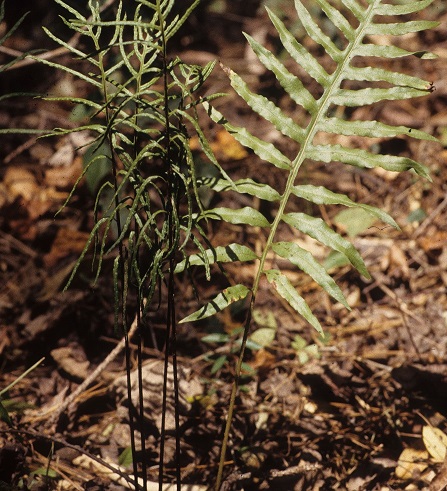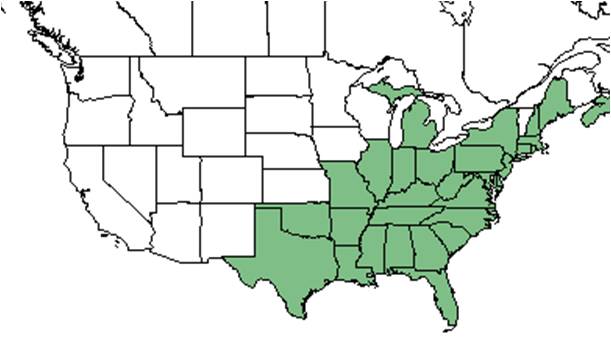Difference between revisions of "Lorinseria areolata"
Emmazeitler (talk | contribs) |
|||
| Line 45: | Line 45: | ||
<!--===Use by animals===--> <!--Herbivory, granivory, insect hosting, etc.--> | <!--===Use by animals===--> <!--Herbivory, granivory, insect hosting, etc.--> | ||
<!--===Diseases and parasites===--> | <!--===Diseases and parasites===--> | ||
| − | ==Conservation and | + | ==Conservation, cultivation, and restoration== |
| − | == | + | ==Cultural use== |
==Photo Gallery== | ==Photo Gallery== | ||
<gallery widths=180px> | <gallery widths=180px> | ||
Revision as of 17:19, 8 June 2021
| Lorinseria areolata | |
|---|---|

| |
| Photo taken by Gil Nelson | |
| Scientific classification | |
| Kingdom: | Plantae |
| Division: | Pteridophyta – Ferns |
| Class: | Filicopsida |
| Order: | Polypodiales |
| Family: | Blechnaceae |
| Genus: | Lorinseria |
| Species: | L. areolata |
| Binomial name | |
| Lorinseria areolata ((L.) T. Moore | |

| |
| Natural range of Lorinseria areolata from USDA NRCS Plants Database. | |
Common name: Netted chain fern[1]
Contents
Taxonomic notes
Synonyms: Woodwardia areolata (Linnaeus) T. Moore.[1]
Varieties: none.[1]
Description
A description of Lorinseria areolata is provided in The Flora of North America.
Lorinseria areolata is a perennial herbaceous species. It tends to grow erect, with a reticulated petiole that is straw-colored, except at the base where it is brown.[2] This fern has a finely toothed, winged rachis and elliptic sori arranged in chains.[2]
Distribution
L. areolata ranges from Novia Scotia to the Coastal Plains of southern Florida and east Texas, and west to Mississippi and Missouri.[1]
Ecology
Habitat
L. areolata can be found in longleaf pinelands, savannas, moist woodlands, cypress woods, shores of lakes, marshes, and ponds, and wooded ravines.[2] It can also occur in disturbed habitats like ditch banks.[2]
Phenology
This species fruits from May through September.[1]
Fire ecology
It occurs in habitats that are frequently burned, including pinelands and savannas, which implies some fire tolerance.[2]
Conservation, cultivation, and restoration
Cultural use
Photo Gallery
References and notes
- ↑ 1.0 1.1 1.2 1.3 1.4 Weakley, A.S. 2015. Flora of the southern and mid-atlantic states. Working Draft of 21 May 2015. University of North Carolina at Chapel Hill, Chapel Hill, North Carolina.
- ↑ 2.0 2.1 2.2 2.3 2.4 Florida State University Robert K. Godfrey Herbarium database. URL: http://herbarium.bio.fsu.edu. Last accessed: June 2014. Collectors: Travis MacClendon, S. W. Leonard, Roy Komarek, Robert K. Godfrey, Loran C. Anderson, T. MacClendon, Boothes, and Annie Schmidt. States and Counties: Florida: Calhoun, Jackson, Leon, and Liberty. Georgia: Grady and Thomas.